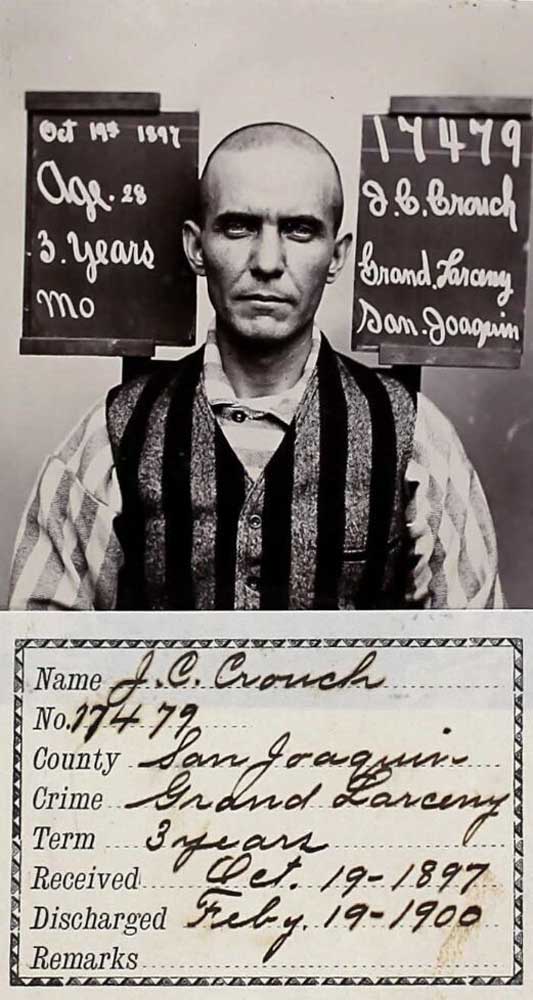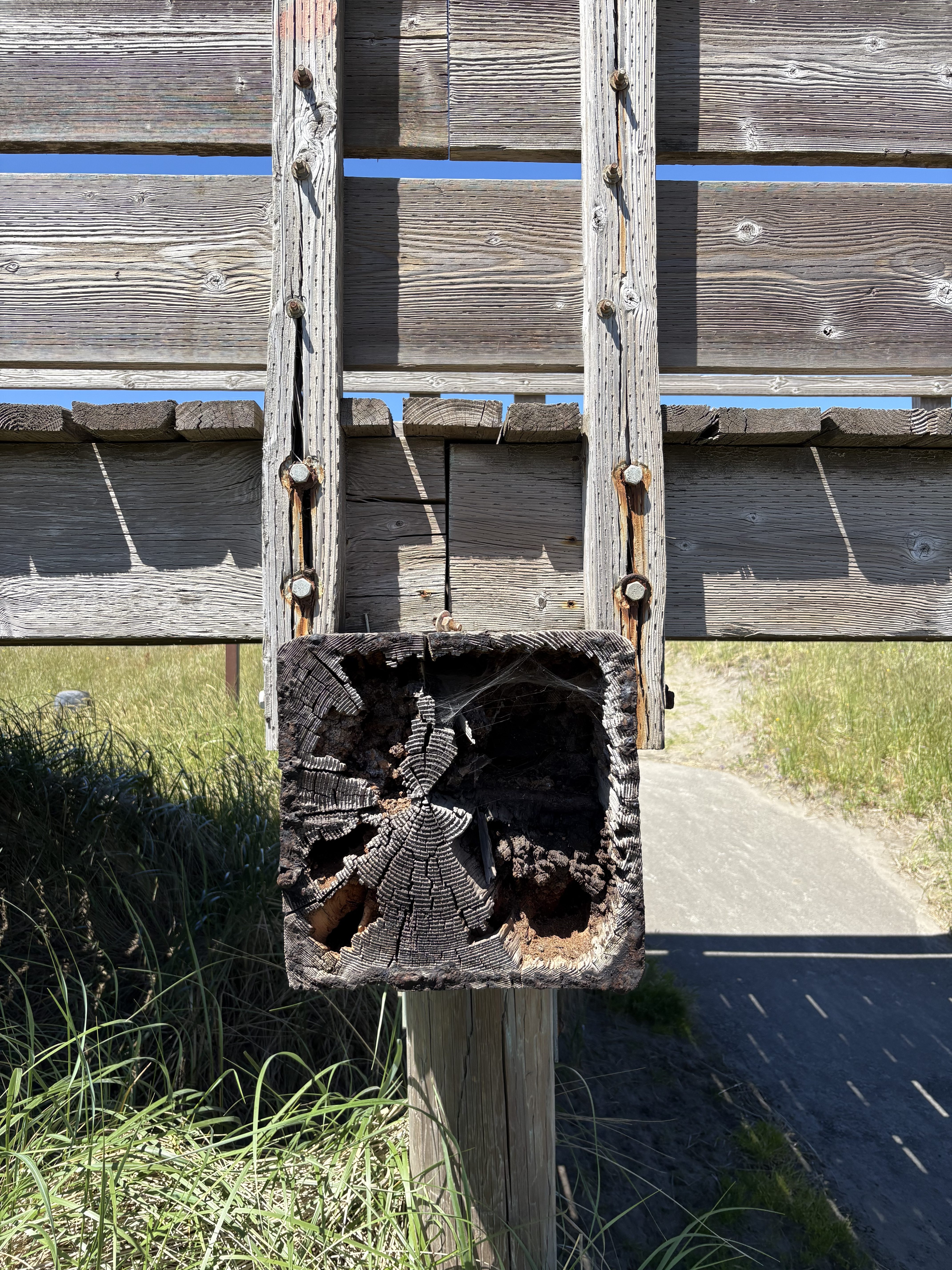Saints or Sinners? Characters of Pacific County: Josiah Crouch ‘was not a righteous man…’
Published 8:23 am Friday, August 16, 2024

- Josiah Crouch mugshot at the conclusion of his imprisonment at San Quentin Prison.
Josiah Columbus Crouch 1868-1942
The arrival of the Rev. Josiah Crouch and his family in Oysterville in early December 1892 was an occasion of great rejoicing, especially among the small Baptist congregation; they had been awaiting his arrival since the completion of their new church in mid-September. Since 1871 when their church was first organized, they had been meeting at the home of Deacon Espy, sometimes with a visiting preacher in residence but usually without benefit of an officially sanctioned minister.
And now! A new church and a full-time preacher who was living in the Tom Crellin House, recently purchased by Espy to be used as a parsonage — hopefully “an added enticement” to remain in the isolated village on the western shore of Shoalwater Bay. On Jan. 1, 1893, 16-year-old Harry Espy (who would one day become my grandfather) wrote in his diary: Rev. Crouch preached two good sermons.
Although the pastor’s wife and baby were seldom seen except at church, passersby could often hear Mrs. Crouch singing hymns in her sweet soprano voice as she went about her housework. Josiah’s fourteen-year-old brother, Charley, attended eighth grade at the two-story Oysterville schoolhouse, and the senior Mrs. Crouch, the pastor’s mother, joined the Village Sewing Bee. It seemed that the family was “settling in.”
The first glimmer of trouble came the following July, again dutifully reported in Harry’s diary: Sunday, July 16 Will Turner came down from Sealand with the news that Mrs. Crouch was drowned in the Willapa [River] yesterday.
Things began to unravel in short order. There were rumors of “marks” on Mrs. Crouch’s neck when the body was recovered, but were they from the rakes used in dragging the river or were they finger marks? Examination by doctors at the gravesite exhumation resulted in no definite conclusion either way. Feelings ran high in Oysterville; there were demands for Crouch’s arrest. When the warrant was finally issued, Crouch hurriedly left town before he could be served. He left with his 18-month-old daughter and, some said, also with another man’s wife.
He headed south, stopping in small communities and serving for a month or two here and there as an itinerant preacher, ostensibly to earn money to send to his mother in Oysterville. She received not a cent and, finally, Espy gave her enough so that she and son Charley could return to their home in Lincoln, Nebraska. (However, there is some evidence that, instead, they joined Josiah in California.)
Meanwhile, a letter arrived at the Oysterville Post Office from a Mrs. Tillie Lindgren Crouch of St. Louis, Missouri, stating that she and Josiah had been married at St. Joseph, Missouri in 1885, that he had left her and their (now seven-year-old) daughter in 1888 and had then married Sarah Tedder — without benefit of divorce.
Additional news about bigamist Crouch also reached Oysterville from San Francisco about that time. Apparently, he had passed his bar examination in California, giving up his preaching profession in favor of a career in law. Soon, however, he was found to be on the wrong side of that line of work, as well, and was incarcerated at San Quentin Prison in October 1897 on charges of “embezzlement committed when making collections on certain notes,” according to an Aug. 21, 1897 article in the Los Angeles Herald. He served two years and four months of his three-year sentence, presumably released early for “good behavior.”
Although his shenanigans caused his disbarment in California, Crouch was soon practicing law again in Washington, Missouri, Nebraska, and even once or twice in Los Angeles. It should also be pointed out that he was occasionally running afoul of the law, as well. He continued to marry, apparently unconcerned about any current marital obligations. Crouch’s record shows that he was married (at least) 13 times, although that number includes marriages on two different occasions to Eva Lois Smith, to Elizabeth L. and to Bertha Eno — unless, of course, the records were confused (which seems entirely possible.)
As for deaths, annulments, divorces or other endings to Crouch’s various states of wedded bliss, the record is even less clear. His 1889 marriage to Sarah, of course, ended with her death in 1893. The final tally, at least as of this writing, seems to be 13, two of which were canceled by death (Sarah’s and his own) and three by divorce, leaving eight in an unresolved state. Perhaps my friend, singer-songwriter Larry Murante said it all in his “Ballad of Mrs. Crouch” when speaking of the Reverend: “He was not a righteous man.”









